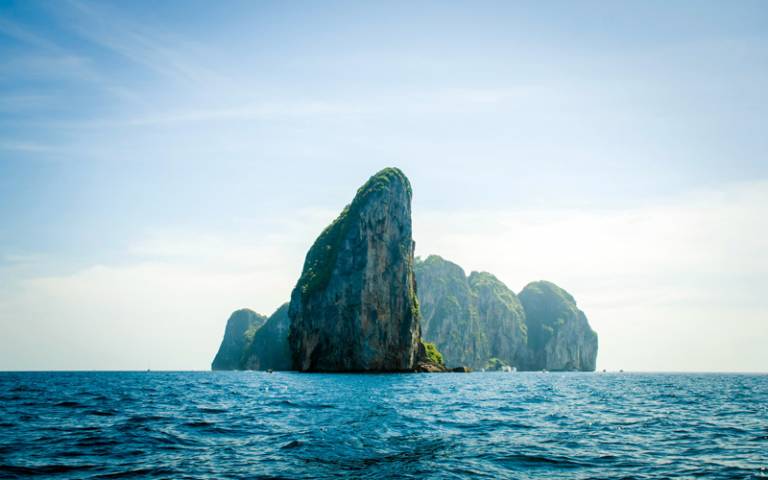UCL EI launches studentship in 'Transforming Islands in Sustainable Circular Energy Resource Hubs'
24 April 2019
The UCL Energy Institute invites applications for a fully funded four-year PhD studentship covering UK/EU fees plus stipend. The deadline for applications is 27 April 2019.

Studentship details
The studentship focusses on the modelling of energy and resource use under different climate scenarios in a circular economy for islands.
Title: ‘Transforming Islands in Sustainable Circular Energy Resource Hubs’
Supervisors
- Dr Catalina Spataru, Associate Professor Global Energy and Resources, UCL EI, Head of the Islands Laboratory UCL EI (primary)
- Dr Teresa Domenech Aparisi, UCL ISR (secondary)
Stipend
- £17,009 – plus fees of £5,210
Start date
- September/October 2019
Funding Duration
- Four years
For eligibility, please check the EPSRC website
Background
Geographical islands suffer from several barriers, most of them relying on oil imports, exposing them to the volatility of international markets. Often, the islands’ greatest renewable energy resources remain untapped. Building a sustainable infrastructure however comes with challenges in terms of environmental, economic and social sustainability. Technological, geographical and commercial factors must be taken into account when discussing potential change of islands into versatile sustainable circular hubs for immediate and long-term resource efficiency operation. Developing sustainable future islands depends on the opportunities to optimally integrate and mobilise energy resources, water, land use, food in a synergistic way to reduce carbon, ecological footprints, and increase community resilience under extreme climate scenarios.
Aim
The proposed PhD topic takes an interdisciplinary approach to analyse trade-offs associated with resource nexus by analysing the use of flows in/out of, and within a community/island given their consumption patterns and supply chains. This will be analysed considering various environmental and economic factors and how they interact to both shape, and be shaped by, the unique geography and resources use, to enable better management of resources in a circular economy. While each island nation is unique, the studentship will focus on clusters to identify patterns that might be relevant globally. Some datasets for energy and water, along with historical material on land use and agricultural production exist for some of these islands, but the student will have the opportunity to extend these.
Duties
In your PhD you will be expected to contribute to further development of the UCL global islands database and to contribute to the integrated tool IDA3 for water-energy-land use that seek to maintain sufficient detail and interdependencies. You could take a dynamic approach to compare transition paths of alternative futures of energy systems and resource use for islands. The project is highly interdisciplinary one requiring an understanding of data processing, different modelling techniques, value stream mapping, etc. and the ideal candidate expected to be interested in working with colleagues across domains. Modelling and simulation will help experiment with new scenarios and business models for the benefit of islands to achieve sustainable goals.
Person Specification
The project is ideally suited to an individual with a mathematical, computer science, engineering, economics background who is motivated to work on problems that can have a real-world impact in supporting the transition of islands towards sustainability. The candidate should have an academic (BSc) degree in such a subject awarded with a first-class or upper second-class (2:1). An MSc degree in a related discipline is also desirable. Knowledge of energy and resource use is advantageous. Experience and knowledge of a relevant programming languages (Phyton, Matlab, Excel VBA, GAMS etc) is ideal. Commitment to full transparency in research methods, data and publications and you should have excellent writing skills.
Candidates without an MSc degree may be admitted in exceptional cases where suitable professional and research experience can be demonstrated, together with excellent numerical and computing skills. Good interpersonal and communication skills (oral and written).
Further information about the group and our projects can be found on the Islands Laboratory website.
For informal enquires, please email Dr Catalina Spataru: c.spataru@ucl.ac.uk
Application Procedure
Stage 1
The following pre-application documents should be emailed directly to the PhD Administrator: bseer-phd-admin@ucl.ac.uk
- CV
- academic transcripts
- One- page personal statement outlining motivation, interest and eligibility for the post
Stage 2
Following the interview, the successful candidate will be invited to make a formal application to the UCL Research Degree programme. Any offer made will be subject to references and proof of meeting the UCL English language requirements.
Deadline for applications: 27 April 2019
Interviews week commencing 13 May 2019
Image: Photo by Mo Baghdadi on Unsplash
 Close
Close

